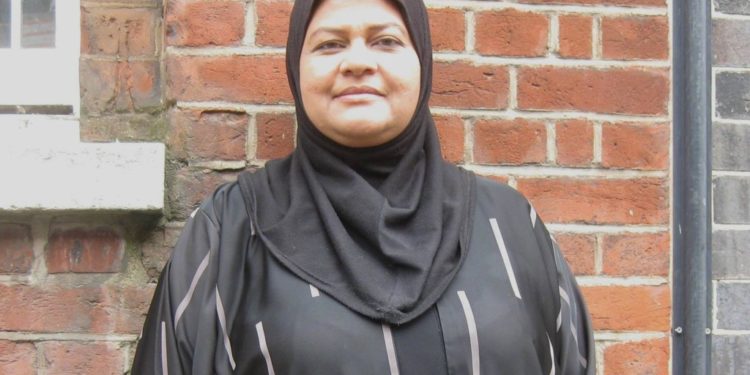A victim of mistaken identity during Kenya’s “War on Terror” in 2007, Kamilya Mohammedi Tuweni Ai Kindy told the Kenyan High Court to ensure her quest for justice is not in vain.
“I want to be told the truth and I want justice served. I want Kenya to apologise,” she said.
Kamilya, a businesswoman and mother of three from the United Arab Emirates who, after apparently being mistaken to be an Al-Qaeda operative , was kidnapped and then rendered to Somalia and Ethiopia by Kenyan counterterrorism forces in 2007 in the context of a sweeping operation against Somali “terrorist suspects” that the Kenyan government orchestrated that year.
Happening: Kamilya case mistaken to be an Al-Qaeda operative, in 2007 #JusticeForKamilya
— JFJustice (@JFJustice) September 14, 2015
Kamilya and two Omani businessmen – Ahmed Kashub and Hassan Mashaani and their Kenyan host Millie Mary Gakuo- were arbitrarily arrested from their hotel in Malindi, taken to Mombasa police station before being moved to Nairobi police headquarters without being told of what they had allegedly committed.
“I was not told why I was being held or if I was charged with any crime, although when we arrived at the police headquarters in Nairobi, an officer said, ‘Welcome, Al Qaeda,’ said a teary Kamilya. She testified against the Commissioner of police and the Attorney General on Monday at the hearing of before Judge Isaac Lenaola of the Kenyan High Court via video link at the Safaricom Company. The case involves alleged contravention of fundamental rights and freedoms under the constitution of Kenya of which she stated that, “Even though I am not a Kenyan citizen I was entitled to protection by and under the Constitution of Kenya and international common law as well as international law instruments that Kenya has signed and covenanted to uphold, was on the night of 9-10 January 2007 arbitrary arrested by the Kenyan authorities to wit, the Kenya police, Anti-Terrorism Police unit in total violation and disregard of the Constitution of Kenya which guarantees the right against arbitrary arrest.”
Senior human rights lawyer Mr Samwel Mohochi, Managing Partner at Mohochi and Company Advocates representing her in Kenya, led her during the hearing. She recounted how she was moved from one police cell to another, how she was moved from Kenya to Namanga, Mogadishu in Somalia and then to Ethiopia under deplorable conditions.
“The conditions in the police cells were terrible…. The conditions in Somalia were terrible. There were holes in the walls from bombs and the people who were holding us did not give us food or water.” “In Ethiopia, I went on hunger strike for three days until they took me for questioning.”
Proud of #Justiceforkamilya 4 courageous justice quest despite odds; extraordinary rendition victims need redress — Carla Ferstman (@CarlaFerstman) September 14, 2015
During her stay in detention she told the court that her brother had written several times to the Kenyan Embassy in Abu Dhabi, and the Kenya National Human Rights Commission but to her knowledge, ‘nothing positive was achieved’.
She also alleged that, “I do not feel to go back to work because of what happened to me. Now, people will help me if I need money but they will not do business with me. I do not want handouts; I want to work.”
She said she has been examined by Dr. Brock Chisholm in London and I refer to the Psychological Assessment Report which states that, “Kamilya is unlikely to recover from Post-traumatic Stress Disorder (PTSD) unless she receives a specialist treatment.”
“Thus, the opportunity of public investigation and if guilty, reparation for wrongdoing is likely to positively impact on Ms. Mohammedi’s psychological health.”
Peter Thande Kuria, the state’s respondent inquired why she had not sued, Somalia, the United States and Ethiopia, she replied that, “Kenya was responsible for her continued violation of her rights while in custody of Somali and Ethiopian authorities over the entire period she was unlawfully held.”
In her claim, Kamilya seeks a clear finding of Kenya having being responsible for her awful treatment, including a formal apology from the Kenyan government, as well as financial compensation for the violations of her rights whilst in the unlawful custody of Kenyan, Somali and Ethiopian authorities.
Judge Isaac Lenaola adjourned the proceedings till 29 October 2015 for continuation.







